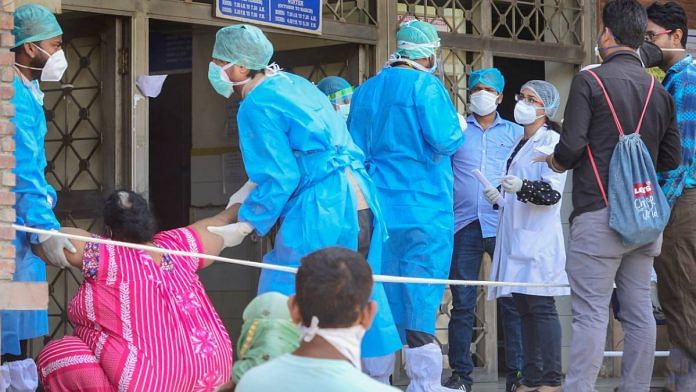New Delhi: After day long anxiety over Chief Minister Arvind Kejriwal’s order reserving hospitals in the national capital only for residents, several people in Delhi breathed a sigh of relief after Lt Governor Anil Baijal overruled the decision.
In the meantime, the order had already been challenged in the high court as well.
But this wasn’t the first time such a decision was taken in Delhi. A similar circular was issued on 1 October 2018 by the Medical Director of Guru Teg Bahadur Hospital, denying certain medical facilities to patients who did not have a Delhi voter ID card.
For instance, non-Delhi patients were neither being provided free medicines, nor laboratory or radiology services. The decision was apparently a part of a pilot project to decongest the hospital.
The petitioner, NGO Social Jurist, had contended that excluding non-Delhi patients from availing of the benefits of free treatment or certain medical facilities at the government hospital violates their fundamental rights under Article 21 of the Constitution.
Similar to the reasons being cited today, the Delhi government had back then submitted that the decision was taken to make the hospital administration more efficient, and protect the interest of doctors and other staff who, it said, were facing hardships because of the number of patients, visitors, attendants, etc. visiting the hospital.
The Delhi High Court, however, on 12 October 2018, set aside this classification of people into residents and non-residents for providing medical facilities to them.
Cannot shirk away from ‘constitutional obligation’
A bench comprising then chief justice Rajendra Menon and Justice V. Kameswar Rao ruled such a classification to be unconstitutional.
“In the present case, the classification is based not on the basis of any scientific or intelligential classification or system but it is based on availability of a Voter ID Card and the purpose to be achieved by this classification is to decongest the hospital and to bring in a system of discipline in the functioning of the hospital and running it in a smooth manner. In our considered view, neither is the classification reasonable, is not based on any justifiable reason nor is the nexus said to be achieved a reasonable one,” it ruled.
The court further asserted that the state government cannot cite financial constraints or lack of facilities to shirk off its “constitutional obligation” to provide medical facilities to people.
“In our considered view, this is not permissible,” it said, adding, “A State is obliged and mandated to provide all such facilities as are to be provided to a citizen, particularly, the requirement envisaged under Article 21 of the Constitution and the reasons given before us cannot be substantial or reasonable reasons for shirking away from discharging this constitutional liability.”
Also read: Endless queues & funerals, scared staff — Delhi’s Covid crisis unravels in chaos at crematoria



